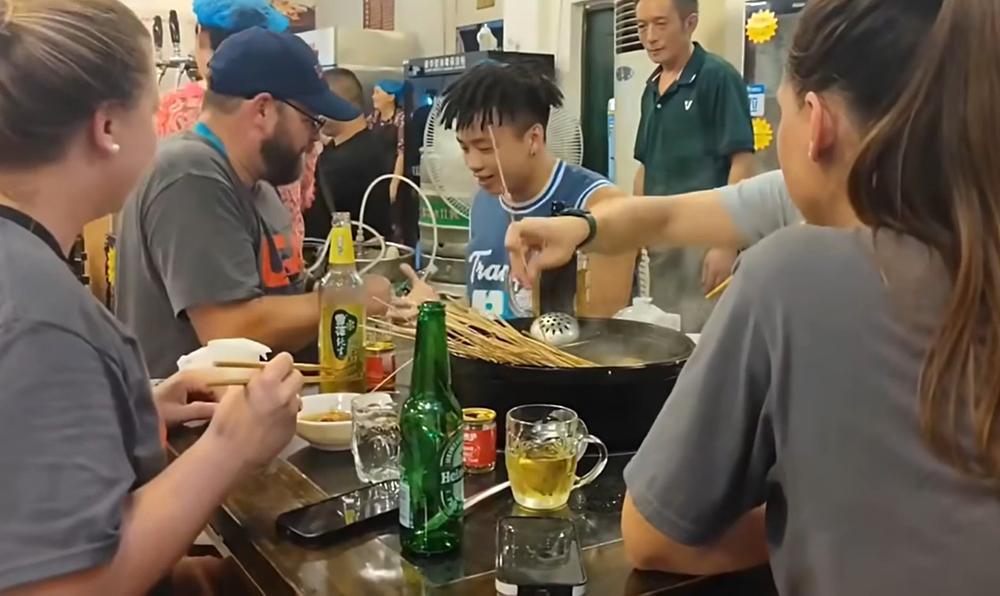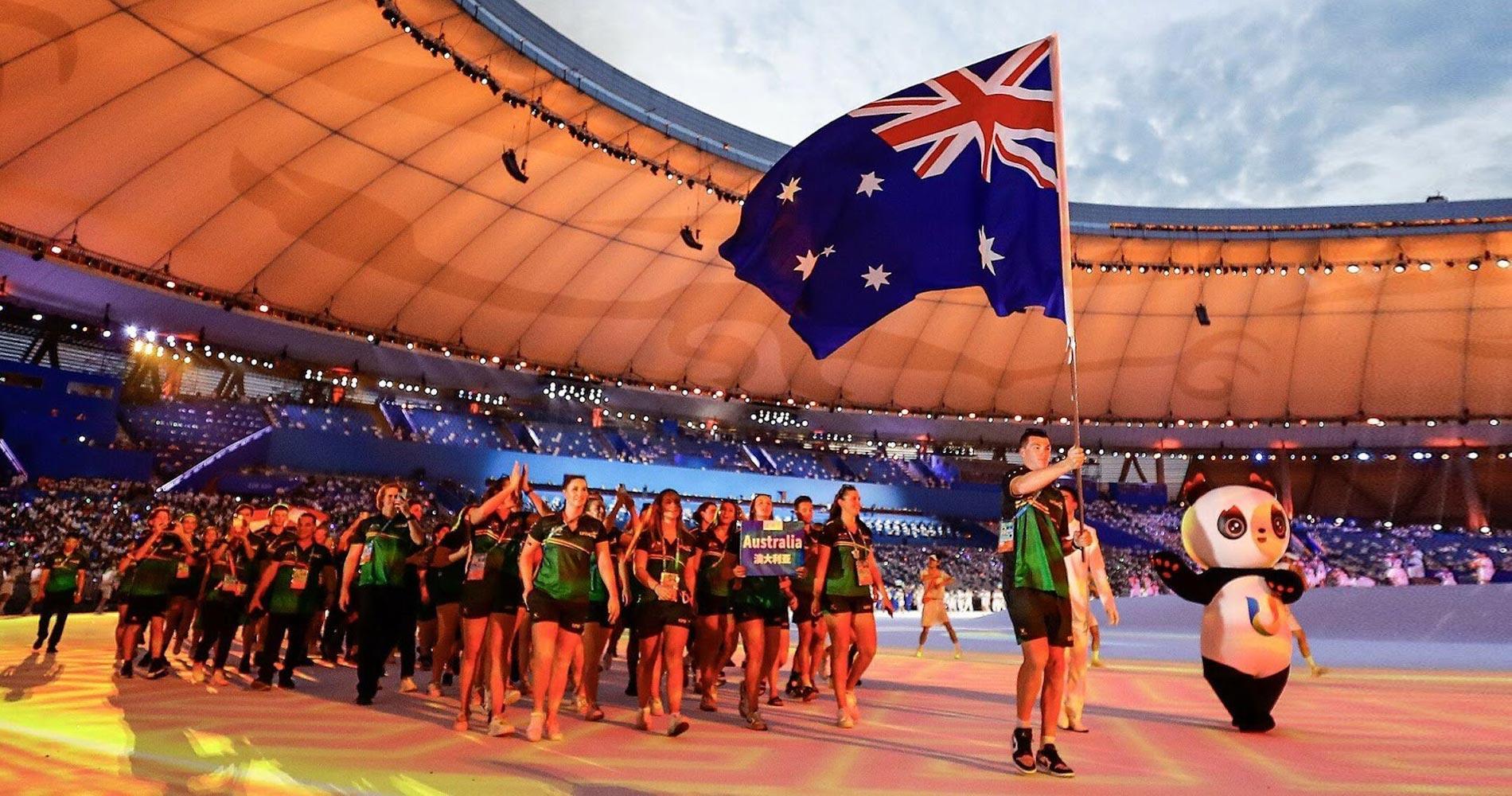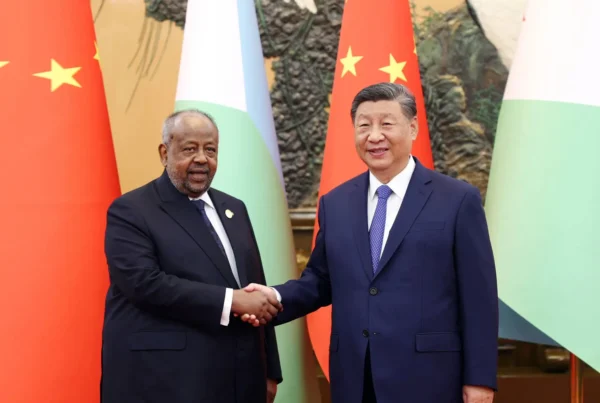This summer Chengdu – China’s fourth largest city – hosted the FISU games. In addition to bringing a young global community of athletes together, the International University Sports Games gave China the possibility to showcase its innovations in the area of robotics and AI.
Scarlett Yan
18 August 2023
Chengdu hosted the 31st International University Sports Federation (FISU) games from 28 July to 8 August 2023 after a two-year postponement because of the pandemic. But China not only hosted the FISU games, but its athletes took first place in the medals table with 103 medals followed by Japan (21) and the Republic of Korea (17) and Italy (17).
After the COVID pandemic and interruption of global exchanges for almost three years, it became especially important for China to show a friendly and open image to the world. With 6500 athletes from 113 countries and regions gathering in Chengdu, a city in Sichuan Province, Western China, the organizers made every effort to leave a good impression on the young global guests during this global sporting event.
Leonz Eder, acting president of FISU spoke highly of the Chengdu Universiade during an interview with China’s Xinhua News Agency. She “congratulat[ed] the authorities who have prepared the fantastic venues and great facilities on hosting the Games. We have hospitable people and the best volunteers here.”
Home Diplomacy in China
Chengdu was the third city in China to host the FISU summer university games after Beijing and Shenzhen. Considered to be one of the most important events in China this year and for China’s image abroad, Chengdu made every effort to make the event a success. With a grand opening ceremony, a well-prepared university games village, fine accommodations, and thoughtful services nothing was left to chance. A YouTuber summed it up: “China is the master of organizing massive scale programs […] Olympics, winter Olympics, world university games.”
But the games were not only a top sports event, but gave China the possibility to highlight its technological innovations with coffee-making robots, real-time translation machines and 3D cameras in the FISU village.
The success of the FISU games was also due to Chengdu’s large financial investment. According to China Daily, Chengdu invested more than 18 billion yuan (USD 2.52 billion) in the construction of large-scale stadium facilities since 2017. Moreover, Chengdu built 13 new venues and renovated 36 existing ones for the FISU.
 Italy celebrates after winning their second straight FISU Games men’s volleyball gold medal. © FISU
Italy celebrates after winning their second straight FISU Games men’s volleyball gold medal. © FISU
This investment was judged to be worthwhile, as China is trying to build a friendly and open image to the world in the post-pandemic era. Years of trade war with the US and the lockdown caused by the pandemic have interrupted international exchanges at all levels. China is trying to return to the international arena with a positive impact by hosting this successful sports and cultural exchange between young people.
Young athletes competing and having fun
Next to the FISU village and sporting venues, young athletes were immersed in a casual and youthful atmosphere in Chengdu. Social media posts attest to the fun these students were having in Chengdu’s streets and alleys. Visiting the panda research base and buying Panda toys. Other popular activities included eating a traditional Chinese hotpot, drinking beer in bistros at night, visiting historical and cultural heritage sights, shopping and even going to square dance events with the locals. During their stay in Chengdu, they tried to blend into the city and soak up the local culture.
On the social media platform Tiktok, many athletes shared their firsthand experience through photos and video clips. Posts of athletes practicing calligraphy or Chinese Kungfu or trying traditional Chinese medicine went viral. Some of them even learned how to play the finger-guessing game, which is part of Chengdu’s popular drinking culture.
 International athletes participating in the 31st FISU World University Games visit the Chengdu Research Base of Giant Panda Breeding in Chengdu. Photo by Wei Xiaohao/China Daily
International athletes participating in the 31st FISU World University Games visit the Chengdu Research Base of Giant Panda Breeding in Chengdu. Photo by Wei Xiaohao/China Daily
 Students are trying finger-guessing game in local restaurant. Source: Video of Sichuan Watch
Students are trying finger-guessing game in local restaurant. Source: Video of Sichuan Watch
Chengdu and the westward movement in China
Chengdu is not only popular for foreign young people, but also attractive to Chinese young people. It has become one of the most vibrant cities in China as more and more young people are flocking to the city. The delicious food, slow pace of life and moderate housing prices, have made Chengdu a welcoming city, especially when compared to big cities such as Beijing, Shanghai, and Shenzhen.
The influx of young people has increased the economic vitality and innovative power of the city. Figures confirm that for the past 10 years the population of Chengdu has grown to more than 20 million, with a net inflow of about 5 million population, making it China’s fourth most populous city.
Research by the Shanghai media group Yicai has shown that Chengdu is also considered one of the new first-tier cities in China. Next to Beijing, Shanghai and Guangzhou, Chengdu offers Chinese young people a new choice in a more relaxed atmosphere, less pressure and more diversified culture. The FISU games have put Chengdu on the map for a global audience.







